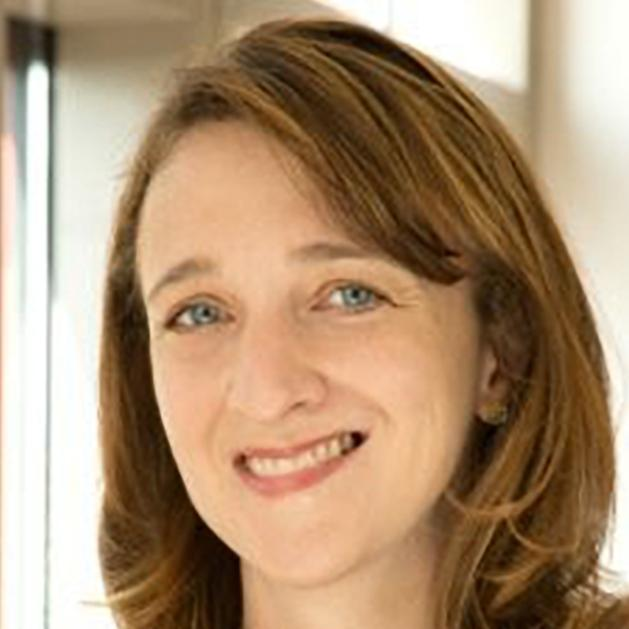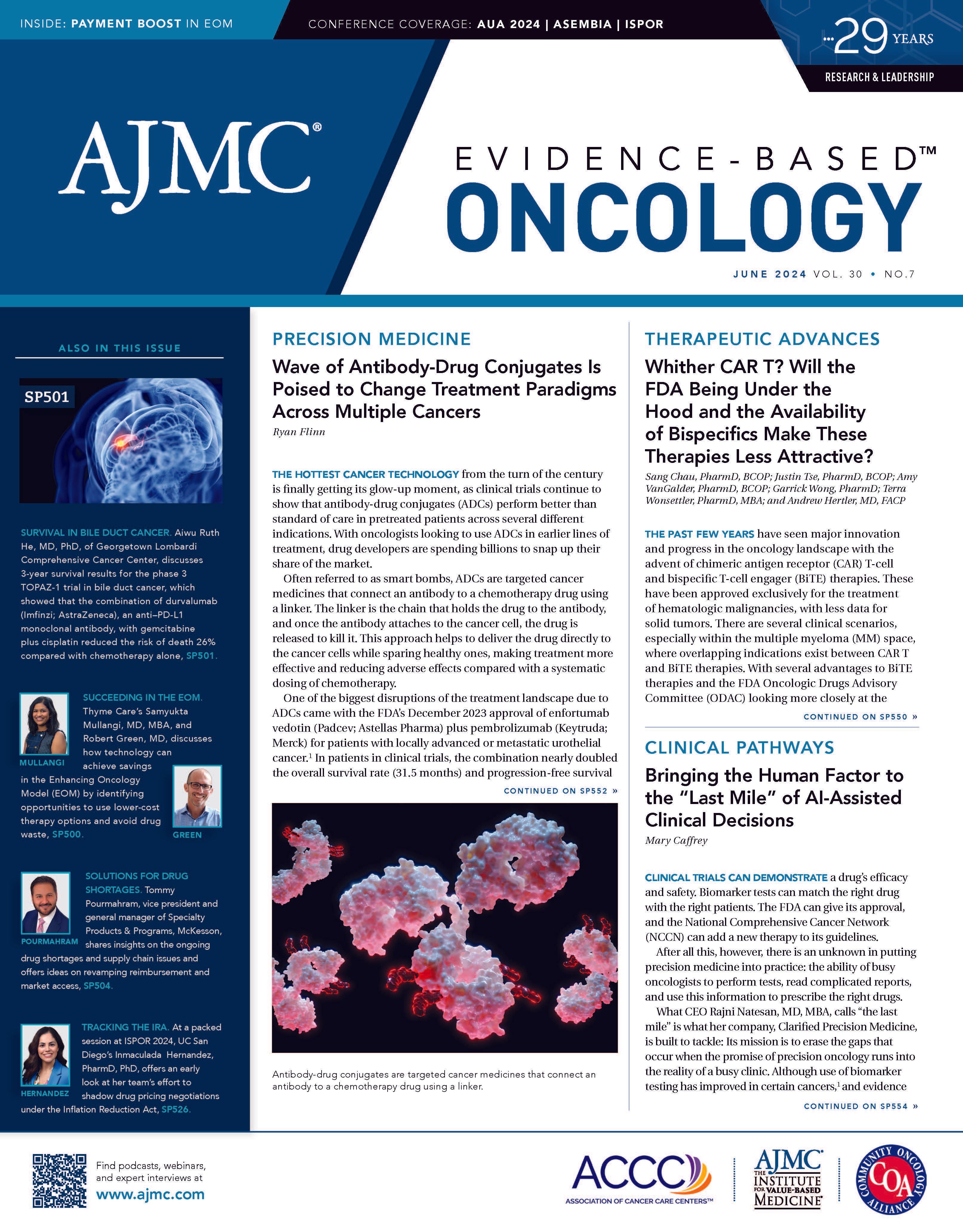
- Center on Health Equity & Access
- Clinical
- Health Care Cost
- Health Care Delivery
- Insurance
- Policy
- Technology
- Value-Based Care
Using NLP to Find “Hidden” Patients for Clinical Trials
Interview on Ontada research presented at ISPOR 2024.
Research presented May 6, 2024, at ISPOR—The Professional Society for Health Economics and Outcomes Research highlights the potential for AI generally and natural language processing (NLP) specifically to aid recruitment in clinical trials. A team from Ontada highlighted how use of NLP can be used to identify patients who meet criteria for oncology trials but whose clinical characteristics may not be recorded in structured data of an electronic health record (EHR).
Jessica Paulus, ScD | Image: Ontada

According to the abstract, pretrained NLP models were used to
find patients whose data were contained in the clinical notes of the iKnowMed oncology-specific EHR, used by community oncology practices. Investigators reported that “a randomly selected sample of NLP results were validated by clinical abstractors for each study to ensure accuracy and reliability,” the authors said.
Jessica Paulus, ScD, senior director, observational research for Ontada, who presented the findings and spoke with EBO, said the ability to accurately assess the potential universe of patients eligible for a clinical trial can make or break whether a study proceeds. This is important when “we’re trying to get our arms around how many patients we have for the study because that’s a major limiting factor in terms of the validity or the efficiency, and even the ethics of going forward for the study,” she said.
“If you don’t have enough patients, that can be ethically problematic, even for real-world data, not [just] interventional studies,” Paulus said.
Finding eligible patients in the structured data is often the easy part, she explained. For this project, Ontada researchers applied algorithms for 20 feasibility studies in a variety of disease states, including lymphoma, renal cell carcinoma (RCC), and rectal cancer, to identify eligible patients “hidden” in the notes who could be added to those revealed in the structured data.
“Even though our data [are] on an electronic health record and [are] consistently used across the entire health care system…there can be cases—a fairly abundant number of cases—where oncologists will document a treatment that a patient perceives in their clinical narrative notes, but not necessarily in the code that they’re entering in the drop-down menu,” Paulus explained. Using NLP can allow rapid recovery of this second group of patients and can increase the potential universe of patients eligible for a study by 3.5 times the original number, results show.
The project greatly enhances Ontada’s ongoing work with FDA to use RWD to investigate rare cancers, she said.
Results. NLP algorithms were applied across 20 feasibility studies. In 17 studies, the process expanded the sample size from structured data counts, while in 3 studies, authors reported that the use of NLP reduced the number of patients necessary for manual chart abstraction. When the goal was to increase the sample size, the average boost was 3.5-fold, with a range of 1.1- to 7.4-fold. When the goal was to reduce the sample size for abstraction, the mean reduction was 80% in the number of patients, with a range of 69% to 89%.
Investigators reported “the NLP results demonstrated high validity.” In a study for RCC, the NLP model pinpointed 315 patients who underwent nephrectomy, and 295 (93%) met inclusion criteria during manual chart abstraction. “This offers a scalable solution for conducting RWD studies and supplements high-effort and costly activities like manual chart abstraction,” they concluded.
Reference
Raju A, Doko G, Su Z, Paulus J, Robert NJ. Use of natural language processing to augment real-world data (RWD) and identify eligible patients at scale for oncology studies. Value Health. 2024;27(6):S1,MSR30

2 Commerce Drive
Cranbury, NJ 08512
AJMC®
All rights reserved.